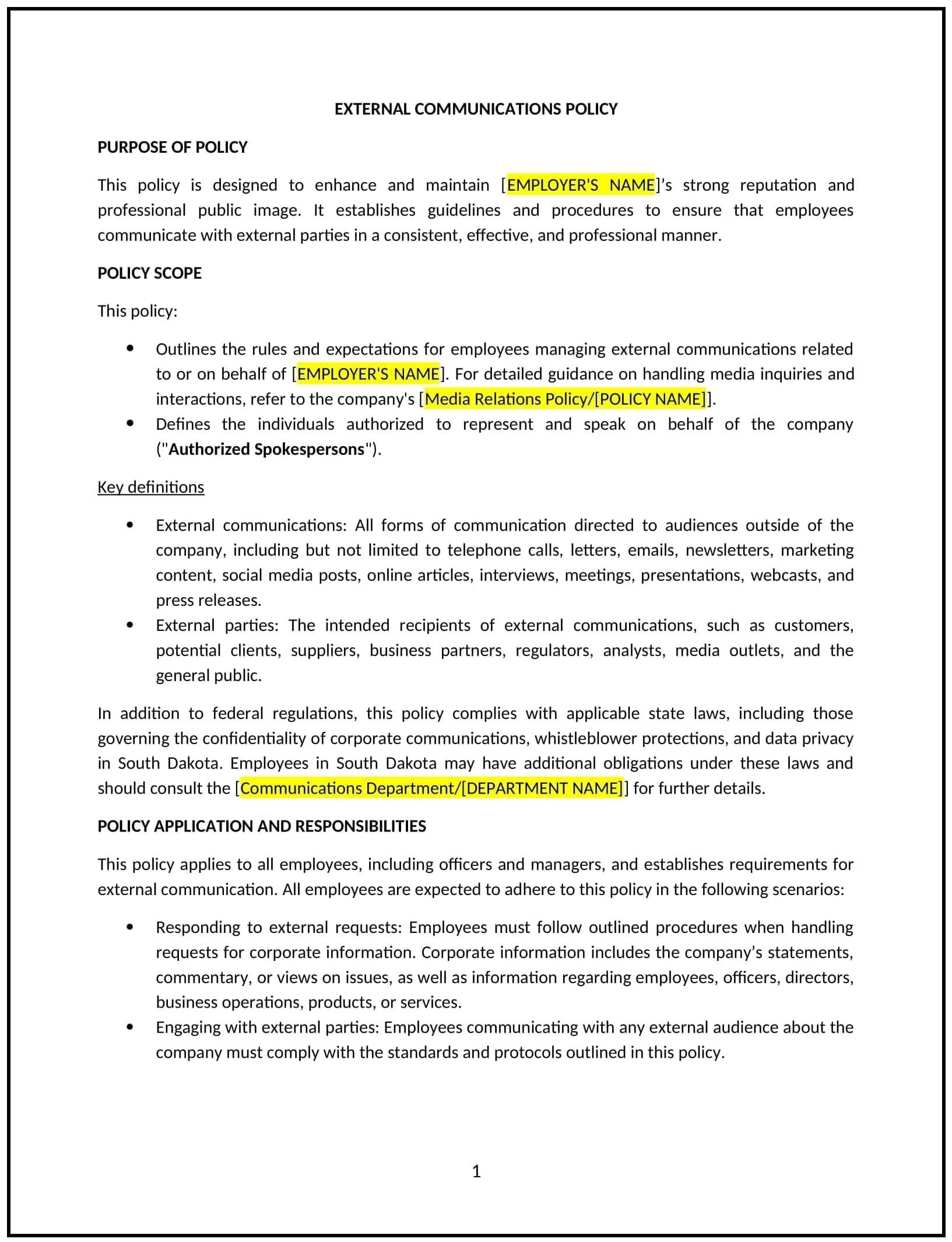External communications policy (South Dakota): Free template
Got contracts to review? While you're here for policies, let Cobrief make contract review effortless—start your free review now.

Customize this template for free
External communications policy (South Dakota)
This external communications policy is designed to help South Dakota businesses establish guidelines for managing communications with external parties, such as customers, vendors, and the public. It outlines procedures for maintaining consistency, professionalism, and brand integrity in all external interactions.
By adopting this policy, businesses can ensure clear and effective communication, protect their reputation, and align with general best practices for external engagement.
How to use this external communications policy (South Dakota)
- Define external communications: Explain what constitutes external communications, such as emails, social media posts, press releases, and customer interactions.
- Establish approval processes: Specify who is authorized to communicate on behalf of the business and the steps for approving external messages.
- Set tone and style guidelines: Provide examples of the preferred tone, language, and branding to ensure consistency.
- Address crisis communication: Outline procedures for handling sensitive or urgent external communications, such as during a public relations issue.
- Train employees: Educate staff on the policy and their responsibilities when communicating externally.
- Monitor compliance: Regularly review external communications to ensure adherence to the policy.
- Review and update: Assess the policy annually to ensure it aligns with evolving business needs and communication trends.
Benefits of using this external communications policy (South Dakota)
This policy offers several advantages for South Dakota businesses:
- Ensures consistency: Maintains a unified voice and brand image across all external communications.
- Protects reputation: Reduces the risk of miscommunication or inappropriate messaging that could harm the business’s image.
- Enhances professionalism: Demonstrates a commitment to clear, respectful, and effective communication with external parties.
- Supports compliance: Helps businesses adhere to industry standards and legal requirements for external communications.
- Builds trust: Strengthens relationships with customers, vendors, and the public by fostering transparent and reliable communication.
Tips for using this external communications policy (South Dakota)
- Communicate the policy: Share the policy with employees and include it in training materials or employee handbooks.
- Provide training: Educate staff on the importance of consistent and professional external communications.
- Monitor compliance: Regularly review external communications to ensure adherence to the policy.
- Address issues promptly: Take corrective action if external communications violate the policy or harm the business’s reputation.
- Update regularly: Assess the policy annually to ensure it aligns with evolving business needs and communication trends.